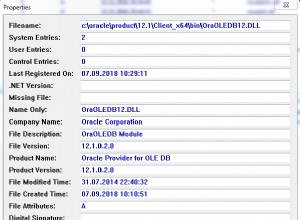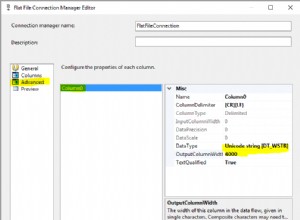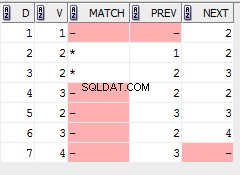Esta é uma maneira raw-sql de extrair o que você quer, eu acho:
select * from articles_users where article_id in (select articles.id from articles inner join articles_users on articles_users.article_id = articles.id where user_id = 1) and user_id = 2;
Onde você pode substituir ids de usuário no Rails:
ArticlesUser.find_by_sql(["select * from articles_users where article_id in (select articles.id from articles inner join articles_users on articles_users.article_id = articles.id where user_id = ?) and user_id = ?", @user1.id, @user2.id])
Ou para vários ids::
ArticlesUser.find_by_sql(["select * from articles_users where article_id in (select articles.id from articles inner join articles_users on articles_users.article_id = articles.id where user_id = ?) and user_id IN (?)", @user1.id, [@user2.id,@user3.id]])
Então, a partir de dados de amostra (de suas outras perguntas):
mysql> select * from articles_users;
+----+---------+------------+
| id | user_id | article_id |
+----+---------+------------+
| 1 | 1 | 1 |
| 2 | 1 | 2 |
| 3 | 1 | 3 |
| 4 | 2 | 1 |
| 5 | 2 | 2 |
| 6 | 3 | 1 |
| 7 | 3 | 3 |
| 8 | 4 | 4 |
+----+---------+------------+
8 rows in set (0.00 sec)
Ele retornará valores assim:
mysql> select * from articles_users where article_id in (select articles.id from articles inner join articles_users on articles_users.article_id = articles.id where user_id = 1) and user_id = 2;
+----+---------+------------+
| id | user_id | article_id |
+----+---------+------------+
| 4 | 2 | 1 |
| 5 | 2 | 2 |
+----+---------+------------+
2 rows in set (0.00 sec)
mysql> select * from articles_users where article_id in (select articles.id from articles inner join articles_users on articles_users.article_id = articles.id where user_id = 1) and user_id = 3;
+----+---------+------------+
| id | user_id | article_id |
+----+---------+------------+
| 6 | 3 | 1 |
| 7 | 3 | 3 |
+----+---------+------------+
2 rows in set (0.00 sec)
Ou para vários IDs de usuário:
mysql> select * from articles_users where article_id in (select articles.id from articles inner join articles_users on articles_users.article_id = articles.id where user_id = 1) and user_id in (2,3);
+----+---------+------------+
| id | user_id | article_id |
+----+---------+------------+
| 4 | 2 | 1 |
| 5 | 2 | 2 |
| 6 | 3 | 1 |
| 7 | 3 | 3 |
+----+---------+------------+
4 rows in set (0.00 sec)
Você pediu uma maneira sql - mas quase certamente há uma maneira ferroviária de fazer isso ... mas isso deve começar, e você pode refatorá-lo daqui.




